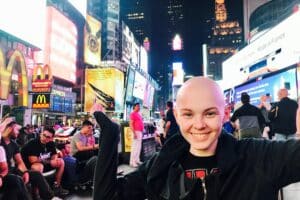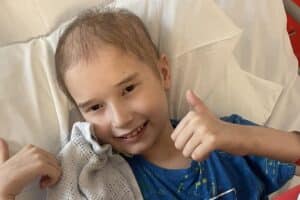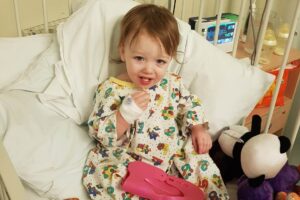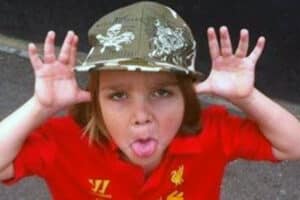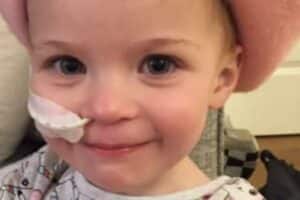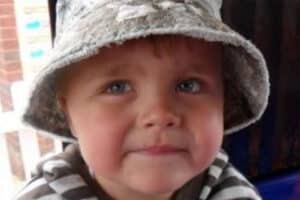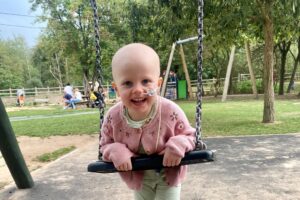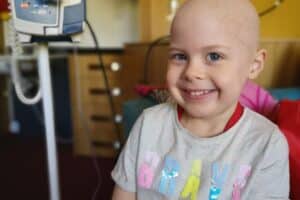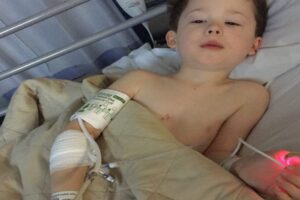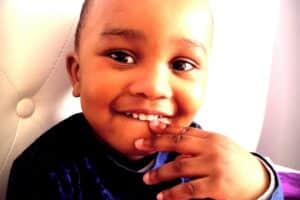Nancy’s Brain Tumour Story
Nancy was diagnosed with Ependymoma, a type of brain tumour, on 6 November 2023 when she was just one year old. Her mum Gemma tells their story so far: Support children like Nancy so that they have a future they deserve.
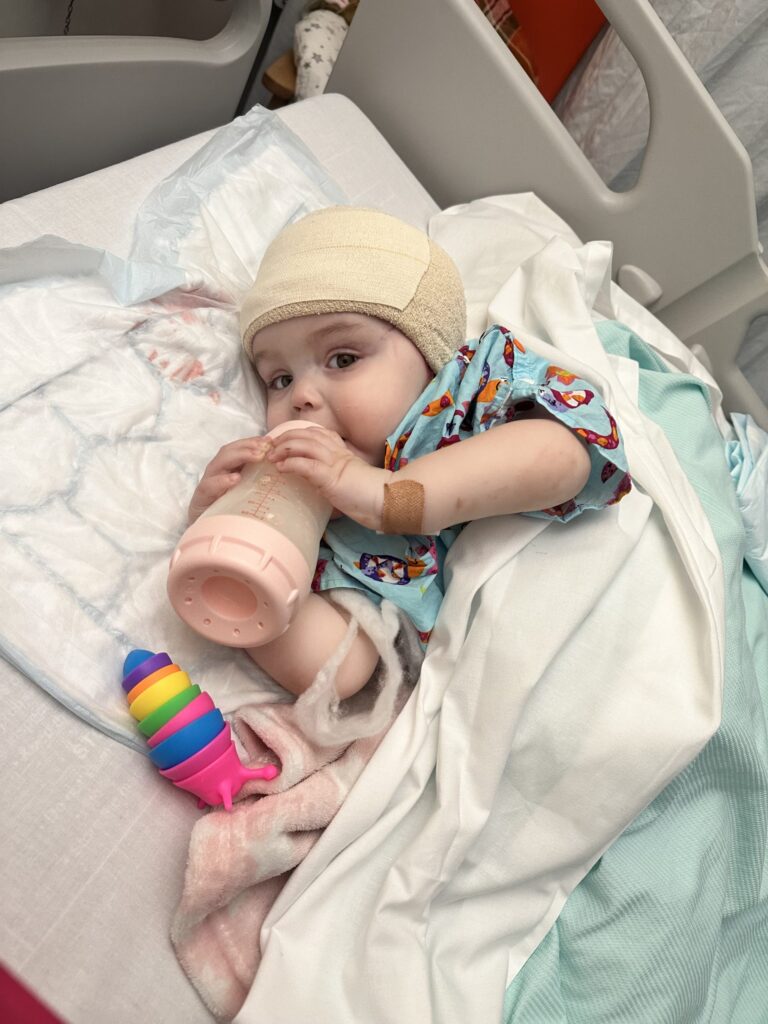
The initial symptoms
At the end of September 2023, Nancy began to feel very poorly, experiencing severe vomiting. Concerned, we took her to a local walk-in centre since we couldn’t get an appointment with our GP. They diagnosed her with tonsillitis and prescribed antibiotics, but the vomiting didn’t stop. Two days later, we returned, and they suspected an allergy to the antibiotics and prescribed a different one. However, Nancy’s condition did not improve. Our GP then gave her antihistamines, but these also didn’t work.
She was unfortunately misdiagnosed for some months.
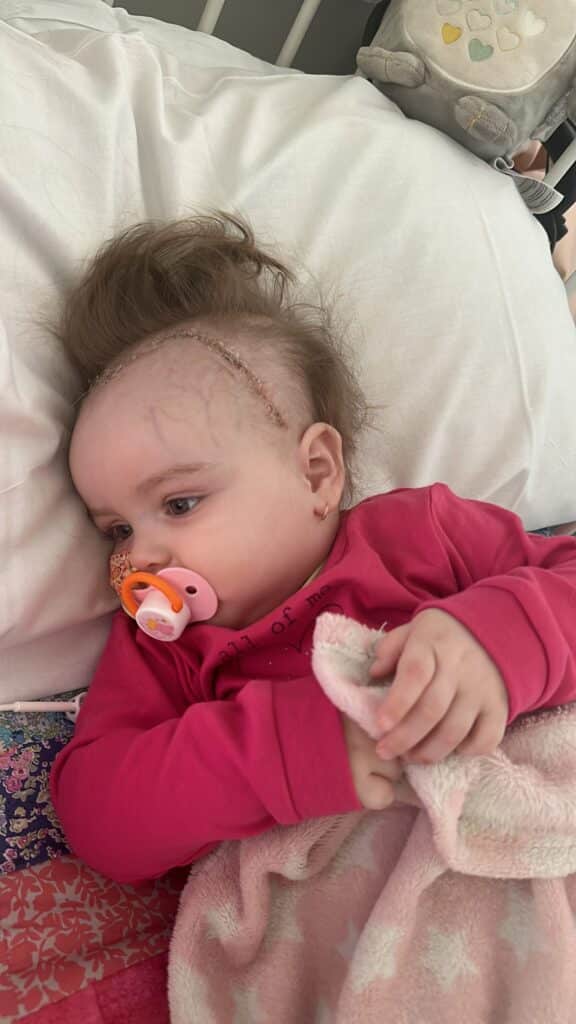
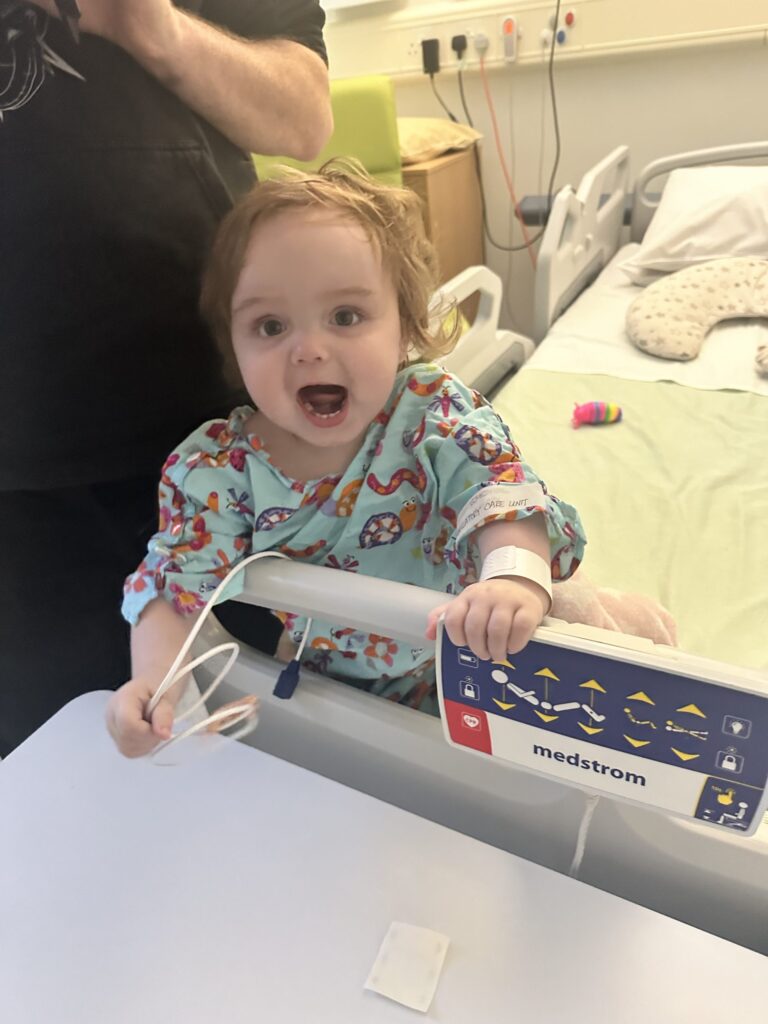
Desperate for answers
Desperate for answers, we took Nancy to A&E. They conducted blood tests and swabs, but everything came back clear, and we were sent home. Over the next seven days, Nancy’s condition deteriorated rapidly. Our once happy 14-month-old had turned back into a new-born baby, lying lifeless on the sofa, unable to move, and her right arm began to shake uncontrollably. We rushed her back to A&E, where they administered anti-sickness medication and took more blood. Since the medication seemed to work, they wanted to send us home, but I refused.
They found something in her nasal passage.
How I found out my child had a brain tumour
After some time of arguing and refusing to leave the hospital, Nancy was taken to a ward and we were seen by a neurologist. We stayed the night and the next day she had an MRI. Less than an hour later, a doctor told us that the MRI revealed a large tumour on the left side of Nancy’s brain. Initially, we were told the tumour was inoperable and that surgery would be fatal. We were transferred to a different hospital, where we were met by a compassionate nurse who reassured us that this prognosis was incorrect and we should never have been told that. A neurosurgeon reviewed Nancy’s scan and discussed a plan of action. She was put on a steroid drip, which began to reduce the inflammation around the tumour and relieve the pressure on her brain.
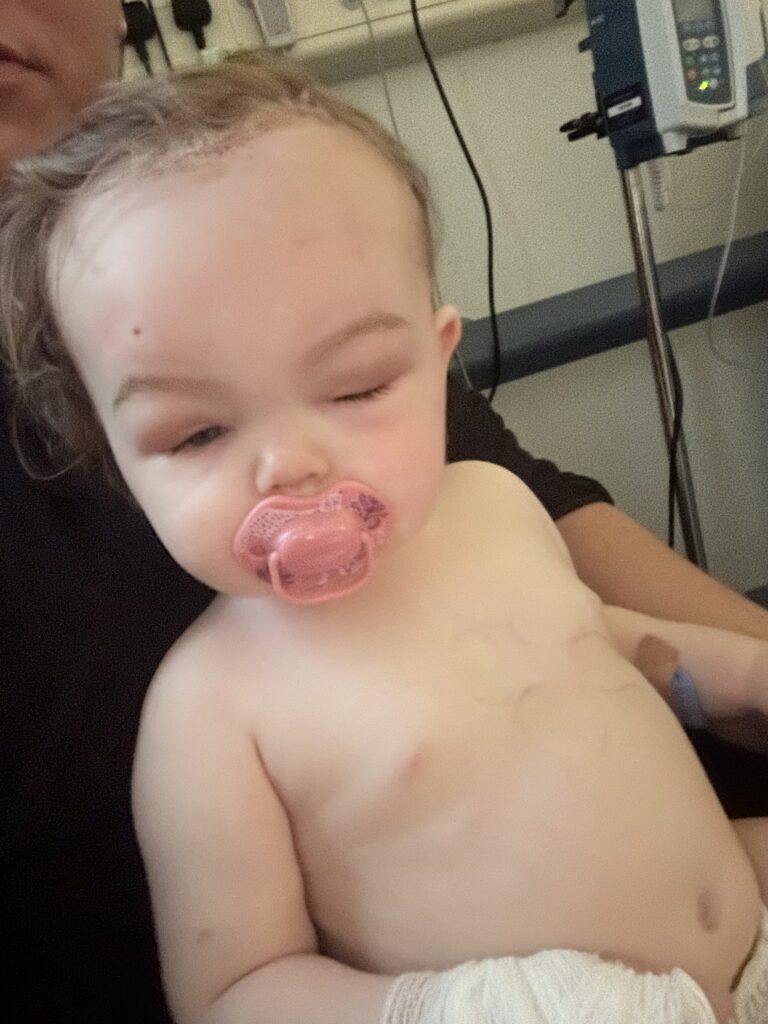
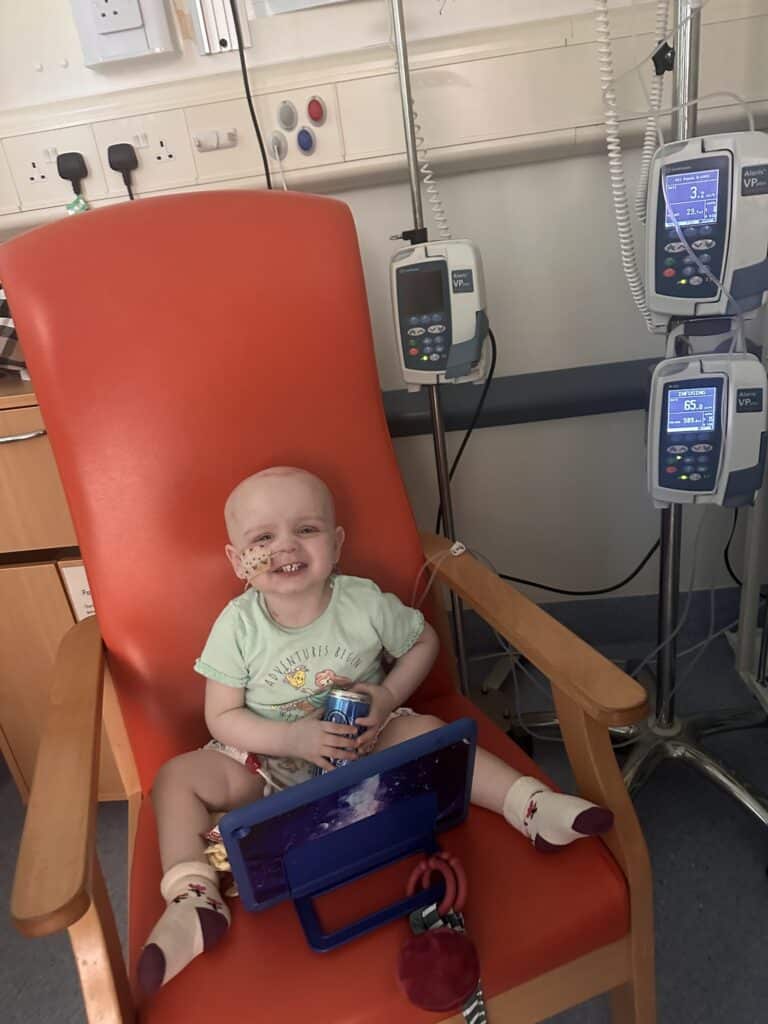
The first surgery
After six days in the ward, Nancy underwent brain surgery. Her surgeon and his team managed to remove 95% of the tumour, which was then sent for analysis. That night, Nancy experienced seizures and we had to spend the night in the ICU. The very big gap in between her brain and skull had filled with fluid and caused body spasms. She is now on anti-seizure medication to help this.
Archer is feisty but that fight has served him well.
Nancy remained her cheerful self
The results confirmed the tumour was ependymoma, a type of brain tumour. The doctors decided to perform a second surgery to remove as much of the remaining tumour as possible to give chemotherapy the best chance of success. Remarkably, when they operated two weeks later, they found that the remaining tumour had already begun to die off, and they were able to remove it completely. Nancy was very swollen for about a week but remained her cheerful self.
Before Jack’s diagnosis I had never heard of neuroblastoma. Sharing his story is our way of shedding light on this disease.
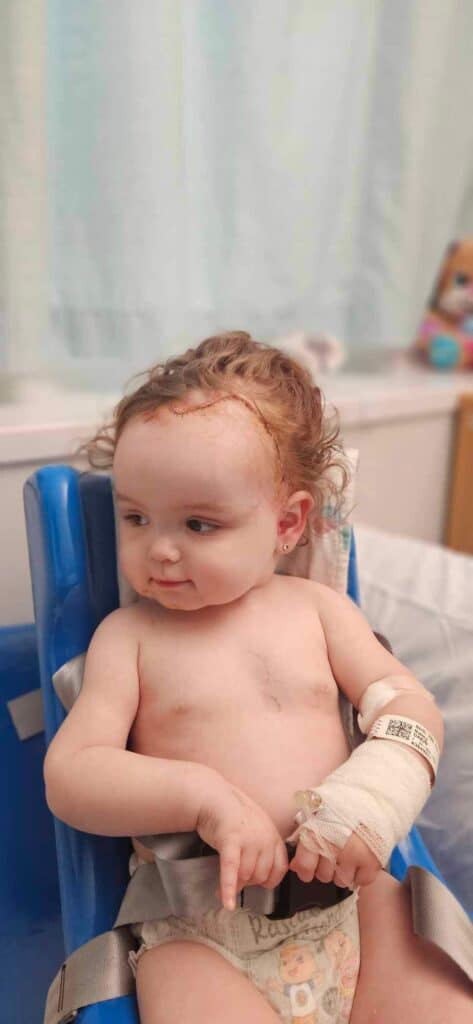
Looking to the future
Two weeks after the last surgery, Nancy had a Hickman line fitted and received her first dose of chemotherapy. We were finally able to go home. Nancy will continue her chemotherapy until New Year’s Day 2025, provided her MRIs remain clear. Additionally, due to the high-strength chemotherapy, Nancy had to undergo surgery to remove and freeze one of her ovaries. This is because this type of treatment will make her infertile. I felt the need to share Nancy’s story so that other parents have an awareness of brain tumour symptoms. If you think your child is unwell and you aren’t being listened to, put your foot down and always get a second opinion. I’m so glad that we did.
Gemma, Nancy’s mum, June 2024
Put your foot down and always get a second opinion
Update: January 2025
She’s now finished chemotherapy and rang the end of treatment bell on the 6th of January. She’s now on the list to have her Hickman line removed as her bloods are where they should be. Her NG is still in as she’s still not fussed about eating much but that’s not something we’re too concerned about yet. She will have a lot of after care including MRIs every 3 months to check for brain tumour reoccurrence. She also needs regular hearing tests due to the platinum based chemotherapy she was on effecting her hearing but other than that she is doing great.
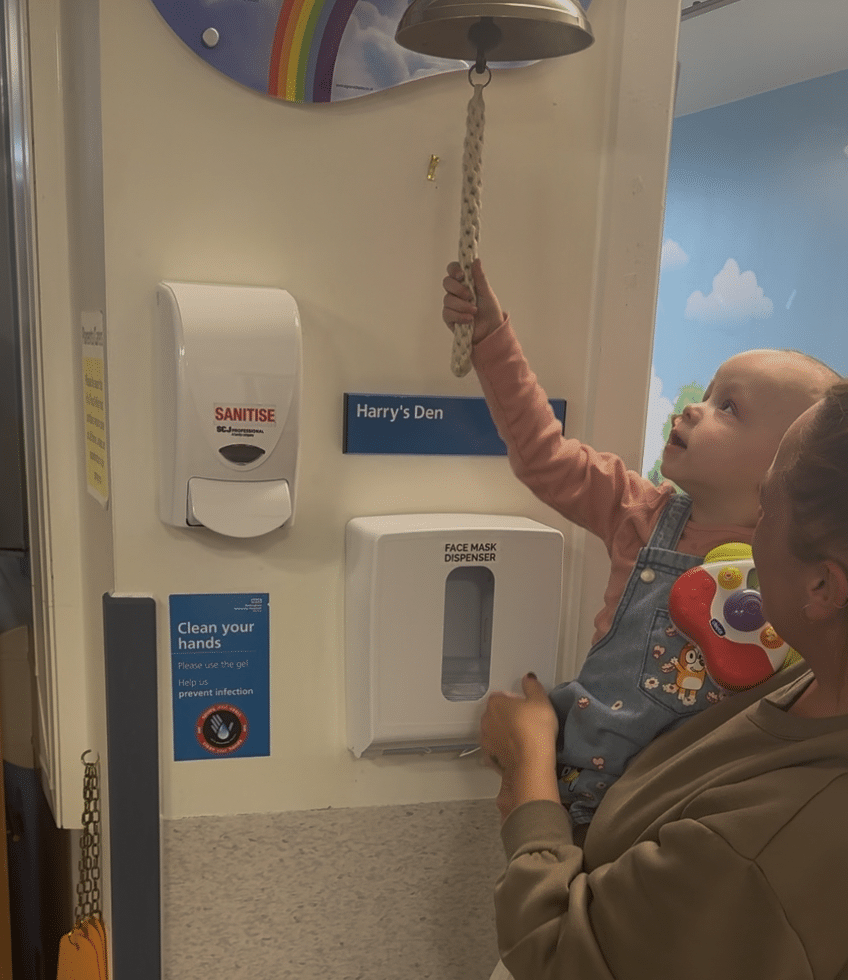
How you can help
If you’ve been touched by Nancy’s journey, help us invest in the high quality research that really matters which would otherwise go unfunded.
This helps to support children with cancer so they can be with their families for longer.
Have you or a family member been affected by childhood cancer?
Many of our supporters have been affected by childhood cancer – either through family, friends or their own personal experience. These patient stories can help inspire others to get involved with us, or can support our media work.
If you have a story that you would like to tell,
Other stories
We have lots of information to help you learn more about childhood cancer. From specific cancer types, to treatments and causes.
